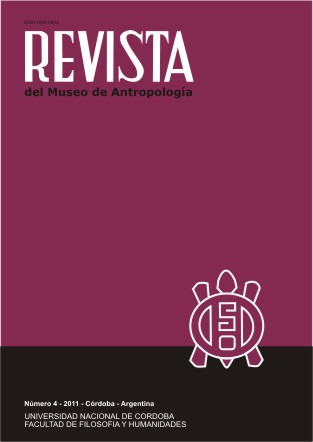Bureaucratic logic, notes and documents. Libraries and the cultural sector
DOI:
https://doi.org/10.31048/1852.4826.v4.n1.5490Keywords:
cultural politics of reading, libraries, writings, information, citizenshipAbstract
This paper reconstructs through a reflexive perspective about the ethnographic practice how notes and documents required for my inclusion in the field turn into the first approach to cultural politics of reading. The aim is to show how these papers are related to different reading approaches from of State field, and in the different libraries that compose that field, namely: popular libraries, publics libraries, community libraries. At the same time this paper seeks to attend the guidelines that these institutions give to citizenship. This article is also about the importance of registration, archive and information inquiry and its impact on the cultural politics of reading. The generation and publication of information about the different types of libraries and cultural organizations related to them, are instruments of great relevance in the basement of the cultural policies.Downloads
References
Abélès, M. 2004. Identity and Borders: an Anthropological Approach to EU Institutions [en línea]. Twenty-First Century Papers. Century Studies. University of Wisconsin, Milwaukee. http://www.21st.uwm.edu. (Última consulta: 18/12/2008).
Abrams, P. 1988. Notes on the Difficulty of Studying the State. Journal of Historical Sociology 1 (1): 58-87.
Bayardo, R. 2008. Políticas culturales en Argentina En: Rubim, A. y Bayardo, R. (Org.) Políticas culturais na IberoAmérica, pp. 19-49. Edufba, Salvador.
Calabre, L. 2009. Políticas culturais: indicadores e informações como ferramentas de gestão pública. Ponencia en la VIII Reunión de Antropología del MERCOSUR (RAM). Universidad Nacional de San Martín, Buenos Aires.
Coelho, T. 2000. Diccionario de política cultural: cultura e imaginario. CONACULTA-ITESO, México.
DaMatta, R. 1987 Cidadania: a questão da cidadania num universo relacional En: A Casa y a Rua. Guanabara, Río de Janeiro.
Fonseca Iubel, A. 2009 “O paradoxo os documentos de identidade: relato de uma experiência nos Estados Unidos”. Horizontes Antropológicos, Vol. Etnografías, Año 15, nº 32, pp. 53-80, PPGAS, Porto Alegre.
Fraenkel, B. 1995 La firma contra la corrupción de lo escrito. En Bottéro J. y otros. Cultura, pensamiento, escritura, pp. 77-95, Gedisa, Barcelona.
Jackson, J. 1990 ‘I Am a Fieldnote’: Fieldnotes as a Symbol of Professional Identity En Roger Sanjek (ed.) Fieldnotes: The Makings of Anthropology, pp. 3-44, Ithaca: Cornell University Press.
Nivón Bolán, E., A. R. Mantecón. 2002. México: la política cultural de los Gobiernos del Distrito Federal 1997-2006. Notas para un balance En Lacarrieu M., Álvarez M. (Comp.). La (Indi) Gestión Cultural. Una Cartografía de los procesos culturales contemporáneos, pp. 175-215, Ediciones Ciccus - La Crujía, Buenos Aires.
O´Donell, G. 1984. Apuntes para una teoría del Estado En Oszlak O. (Comp.) Teoría de la burocracia estatal: enfoques críticos, pp. 199-250, Editorial Paidós, Buenos Aires.
Pantaleón, J. 2005 Entre la carta y el formulario. Política y técnica en el desarrollo social. Buenos Aires: Editorial Antropofagia.
Petit, M. 1999 Nuevos acercamientos a los jóvenes y la lectura. México: Fondo de Cultura Económica.
Rubim, A., I. Oliveira Rubim, M. Pitombo Vieira. 2006 Actores sociais, redes e políticas culturais En Convenio Andrés Bello (CAB) 2, pp. 13-64, Edición del Convenio Andrés Bello, Brasil.
Weber, M. 1985. Burocracia. En Max Weber. Ensayos de sociología contemporánea, 1, pp. 167-232, PlanetaAgostini, Barcelona.
Downloads
Published
Issue
Section
License
Those authors who have publications with this Journalaccept the following terms:
a. Authors will retain their copyrights and guarantee the journal the right of first publication of their work, which will be simultaneously subject to the Creative Commons Attribution License (Licencia de reconocimiento de Creative Commons) that allows third parties to share the work as long as its author and his first publication in this journal.
b. Authors may adopt other non-exclusive licensing agreements for the distribution of the version of the published work (eg, deposit it in an institutional electronic file or publish it in a monographic volume) provided that the initial publication in this journal is indicated.
c. Authors are allowed and recommended to disseminate their work on the Internet (eg in institutional telematic archives or on their website) before and during the submission process, which can lead to interesting exchanges and increase citations of the published work. (See The Effect of Open Access - El efecto del acceso abierto)












